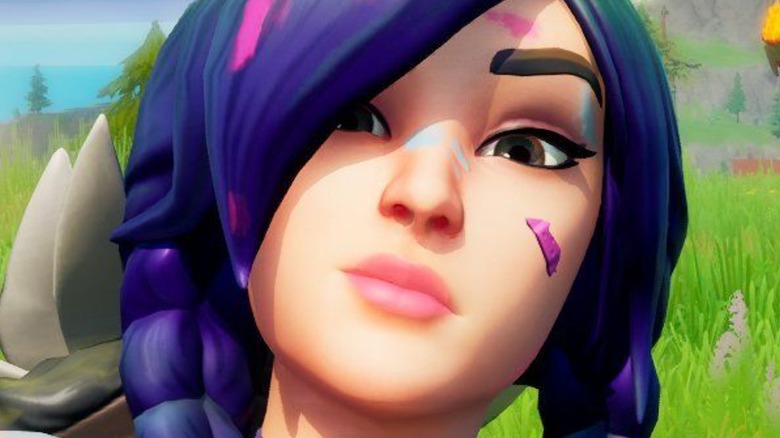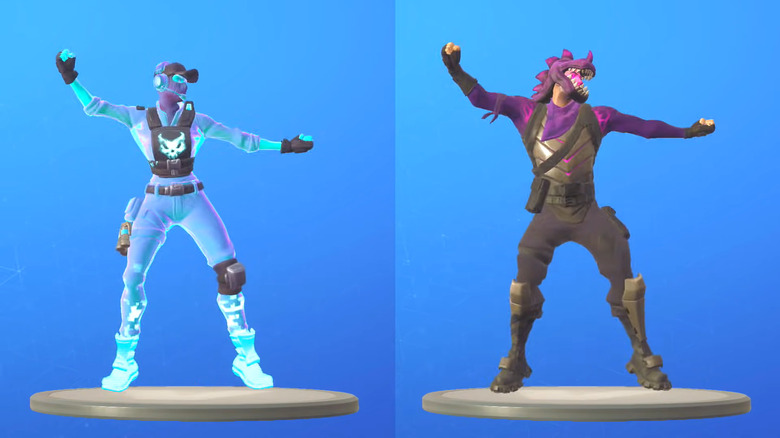What Fortnite's Dance Lawsuit Ruling Really Means For The Game
Epic Games' "Fortnite" is one of the most popular games around, with over 250 million active players, according to activeplayers.io. However, few would call it original. For example, gamers often argue that "Fortnite" began as a blatant rip-off of "PUBG."
In addition, "Fortnite" often collaborates with companies to implement popular characters and items from other franchises into the game. These products are then made available to purchase via the in-game shop, with the original creators receiving full credit. One of the most recent examples of this is the "Dragon Ball" crossover.
However, when popular dances are added to "Fortnite," Epic Games does not collaborate with the original creators or ask permission (per Rolling Stone). This practice has spawned a handful of lawsuits from various content creators, such as Alfonso Ribeiro from "The Fresh Prince of Bel-Air," who alleged Epic Games copied his iconic Carlton Dance without his permission. But none of these lawsuits have ever gone in favor of the prosecution, as the US Copyright Office has refused to offer copyright for dances, no matter how unique and iconic they are. But recently, a creator challenged the courts with a copyright claim in hand for a choreographed dance they believe Epic Games copied with the "It's Complicated" emote. However, it didn't turn out as they expected.
A big win for Epic Games
According to court documents, first reported on by PCGamesN, the copyright lawsuit pertaining to the "It's Complicated" emote was dismissed by a judge on August 24. Kyle Hanagami filed the lawsuit earlier this year alleging that the "It's Complicated" emote was derivative of the artist's choreographed dance featured in a video set to Charlie Puth's "How Long," released three years before the emote. And when looking at the dances side by side, courtesy of Hanagami's attorney David Hecht, it's easy to see how Hanagami came to that conclusion. In addition, Hanagami alleged that Epic Games did not approach him about adding the dance.
But, unlike previous lawsuits of the same type, the judge didn't cite a missing copyright claim as the reason for throwing the case out, as Hanagami had one in hand. Instead, the judge argued that the small portion of the dance used in the emote was not subject to copyright as "choreographic works do not include social dance steps and simple routines'" (per PCGamer). This ruling sets a new precedent: any short dances and moves are now up for grabs. And since "Fortnite" emotes only last a few seconds, it would be nearly impossible for someone to win a copyright lawsuit against Epic Games for stealing dances.


